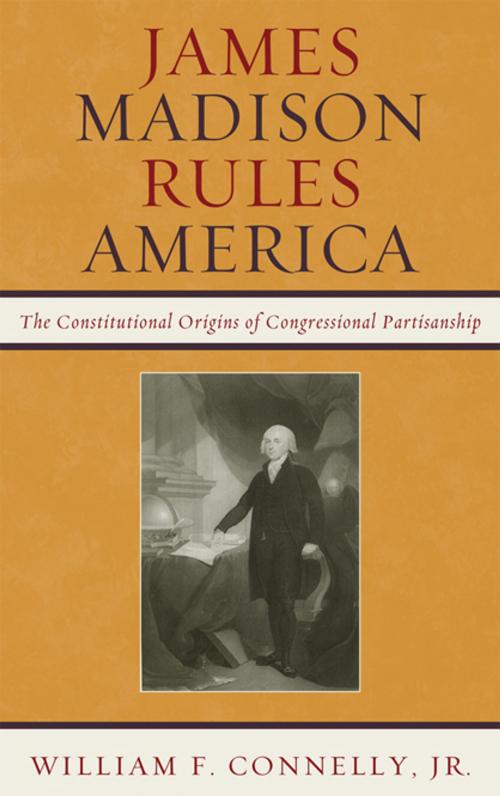James Madison Rules America
The Constitutional Origins of Congressional Partisanship
Nonfiction, Social & Cultural Studies, Political Science, Government, Political Parties, Democracy| Author: | William F. Connelly Jr. | ISBN: | 9780742599673 |
| Publisher: | Rowman & Littlefield Publishers | Publication: | June 16, 2010 |
| Imprint: | Rowman & Littlefield Publishers | Language: | English |
| Author: | William F. Connelly Jr. |
| ISBN: | 9780742599673 |
| Publisher: | Rowman & Littlefield Publishers |
| Publication: | June 16, 2010 |
| Imprint: | Rowman & Littlefield Publishers |
| Language: | English |
James Madison Rules America examines congressional party legislative and electoral strategy in the context of our constitutional separation of powers. In a departure from recent books that have described Congress as 'the broken branch' or the 'Second Civil War,' William Connelly argues that partisanship, polarization and the permanent campaign are an inevitable part of congressional politics. The strategic conundrum confronting both parties in the House of Representatives, whether to be part of the government or part of the opposition provides evidence of how concretely James Madison's Constitution governs the behavior of politicians to this day. Drawing on a two-hundred year debate within American political thought among the Federalists, Anti-Federalists, Alexis de Tocqueville and Woodrow Wilson, James Madison Rules America is as topical as current debates over partisan polarization and the permanent campaign, while being grounded in two enduring and important schools of thought within political science: pluralism and party government.
James Madison Rules America examines congressional party legislative and electoral strategy in the context of our constitutional separation of powers. In a departure from recent books that have described Congress as 'the broken branch' or the 'Second Civil War,' William Connelly argues that partisanship, polarization and the permanent campaign are an inevitable part of congressional politics. The strategic conundrum confronting both parties in the House of Representatives, whether to be part of the government or part of the opposition provides evidence of how concretely James Madison's Constitution governs the behavior of politicians to this day. Drawing on a two-hundred year debate within American political thought among the Federalists, Anti-Federalists, Alexis de Tocqueville and Woodrow Wilson, James Madison Rules America is as topical as current debates over partisan polarization and the permanent campaign, while being grounded in two enduring and important schools of thought within political science: pluralism and party government.















